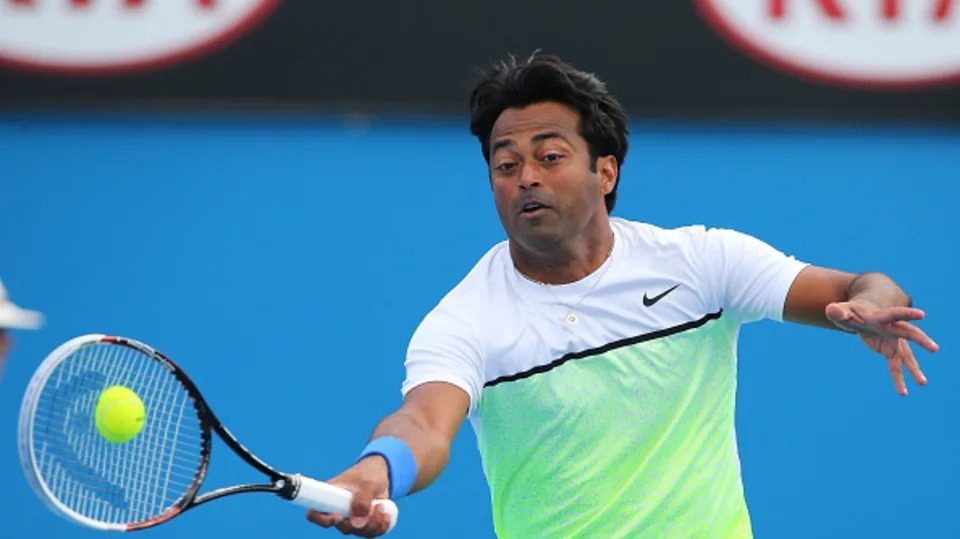
We remember watching Leander Paes play Andre Agassi at the Atlanta Olympics in 1996, and the pride we felt each time Paes stunned the crowd with one of his fancy drop shots, too many of which may ultimately have cost him the match. Leander, then ranked 127 in the world, was someone who raised the bar a series of notches when he donned the national colours at the Olympics. In qualifying for the semi-finals, Leander upset four competitors ranked higher than him in the ATP rankings. As Rohit Brijnath, one of India’s finest sports writers, who covered the Atlanta games, had written, “Here was a player who by sheer force of his passion and rage transcended ‘his averageness when his nation’s flag flew’, a rare non-cricketing hero who moved India like no other, a tennis player who was to be hailed as the ‘spiritual leader’ of a new movement of ‘the art of the possible’.”
No history of Indian sport can be complete without an ode to the grit and determination of Paes. In an age of instant stardom for even the worst performers in the national cricket team, Leander soldiered on, relatively unsung.
Paes won Grand Slam after Grand Slam (in doubles), and beat far higher-ranked opponents while representing the country in the Davis Cup. When he won his Olympic bronze in 1996, it was India’s first medal in an individual event in 44 years. Paes continued to inspire, amaze, startle and, to top it all, win laurels for the nation with incredible regularity.
In Atlanta, as a rank outsider at the start of the tournament, he finished third because of his never-say-die attitude and unparalleled patriotism, which helped him to psyche himself up and raise his game to a level he never matched again.
“Everyone who has watched Leander Paes play has a story,” wrote Brijnath. “Mine is corny. In 20 years of sports writing, no player has done what he did to me. On the day in Atlanta at the 1996 Olympics, as he battled stuttering form to win bronze, the strangest thing happened. I cried. It wasn’t just because a nation of a billion had been tired of mediocrity, had been waiting so long, 44 years at that point, for one more individual Olympic medal, just to show we belonged, to feel briefly empowered. It was more than that. You cared because he cared. Because he was technically defective, and too short, and his game too high risk, but he’d fight every flaw, he’d front every challenge, he’d tilt wildly at windmills. This was not a great player by any stretch…But somehow he’d manage to transcend his averageness when his nation’s flag flew. He’d move you because when he played for India he did that simplest of things. He tried.”
It has often been suggested that Leander was an average tennis player who reached another level when he donned India colours. While on the one hand, this is meant as praise – he continued to remain patriotic after 25 years of the professional grind – on the other, it dwarfs all his other achievements: many Grand slam titles, which helped put India on the world tennis map again.
If Agassi could play the US Open all through his career as an American, play before his ‘home’ crowd and make them weep and dance at the same time, what makes us feel Leander only played the Davis Cup or the Olympics for India, and all other tournaments for himself?
When Leander beat Fernando Meligeni of Brazil in the battle for third place at Atlanta, the country was at first too stunned to react. Finally, the medal drought had ended. But the true sportsman in Leander did not want to ride high on his achievements, and come back to India to bask in post-Olympics glory. Rather, he stayed back in the US for a while to improve his ranking, allowing the somewhat superficial euphoria to die down a little.
His reaction after winning the bronze was yet another tribute to his sportsmanship. “It’s just amazing how things can happen with a little bit of effort,” he had said. “And that’s really been my story at the Olympics. I’ve just been putting in effort match after match, point after point…Even on Saturday, I was down a set. I was really nervous this morning. I guess the 44 years and 16 years that we have not won a medal was getting to me. It took a while to get over my nerves out there. The effort paid off in the end.”
Interestingly, Paes, who had entered the Atlanta Olympics as a wildcard entry, praised the roles played by Jaidip Mukerjea, his coach, and Mahesh Bhupathi, then his doubles partner, in propelling him to Olympic glory. “Bhupathi skipped one week of ATP tour play to stay with me and give me encouragement,” he had said. “I am very grateful for the gesture.”
Paes’ Path to the Bronze Medal
1st Round: Beat Richie Reneberg who ultimately retired due to a hamstring injury.
2nd Round: Beat Nicolas Pereira of Venezuela 6–2, 6–3
3rd Round—Beat Thomas Enquist, No.3 seed, from Sweden 7–5, 7–6
Quarter final: Beat Renzo Furlan of Italy 6–1, 7–5
Semi-final: Lost to Andre Agassi, top seed, of the USA 6–7, 3–6
Bronze medal play-off: Beat Fernando Meligeni of Brazil 3–6, 6–2, 6–4



